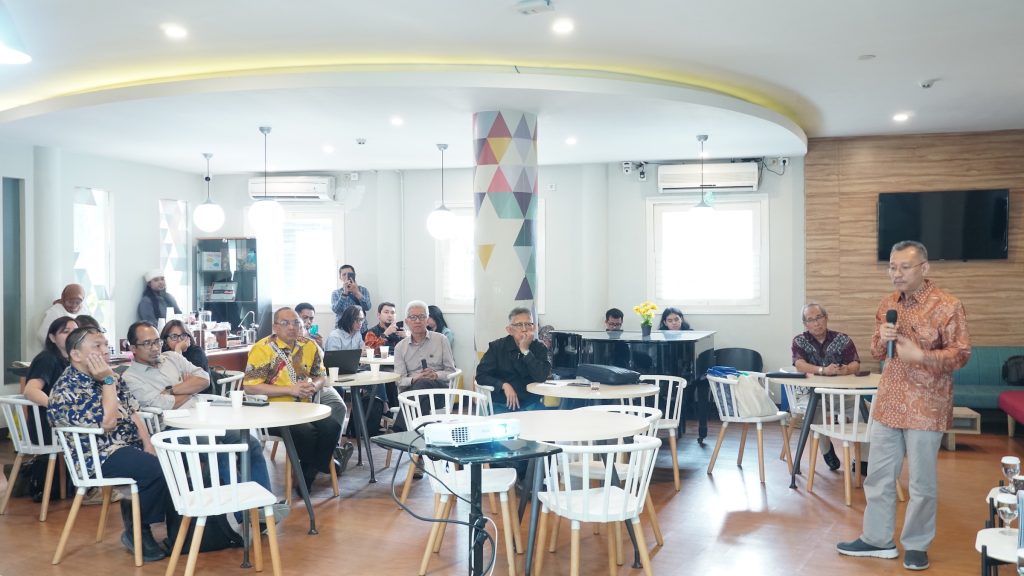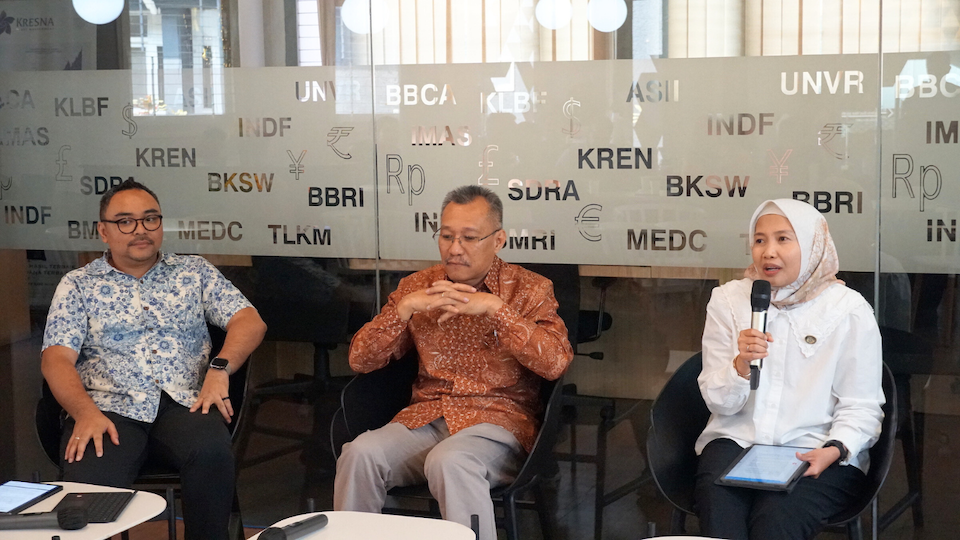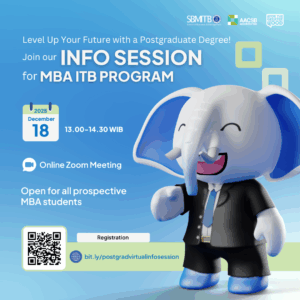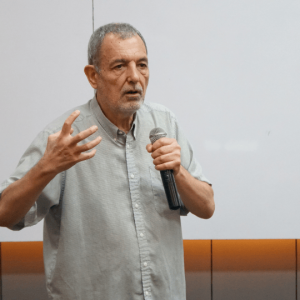SBM ITB held a book review activity entitled “The Sustainability University of the Future,” a collection of writings by several authors discussing the university’s future, on Tuesday (15/8) in Bandung. This session discusses ideas and discussions about implementing sustainability 2.0 in higher education institutions. SBM ITB has a challenge to implement the ideas in the book.
The book discusses the framework and concept of sustainability in higher education. It also elaborates case studies on how Turkey, the University of Hong Kong, and the American University of Beirut in Lebanon implement sustainability in their respective institutions.
This session featured Prof. Togar M. Simatupang, Ph.D., and Sonny Rustiadi, M.B.A., Ph.D., as the speakers, and Santi Novani, Ph.D. as the moderator, all prominent figures within SBM ITB.
Santi opened the discussion by explaining the relevance of book topics in SBM ITB in the new wave era, where it is the role of academics to lead the adoption of new changes to build a better future, not only in the academic world but also in the world of business and government.
“What is the role of SBM ITB – both as leaders, researchers, faculty, and students – in implementing sustainable development through vision, mission, values, statements, and strategic plans in organizational culture to create a university that implements sustainability?” said Santi.
Prof. Togar emphasized the importance of leadership in the future in establishing long-term sustainability. SBM ITB has taught its students essential values: system thinking and continuous professional development. SBM ITB equips its students with future-fit leadership to prepare them to face challenges in a world experiencing deterioration and is full of VUCA (volatility, uncertainty, complexity, ambiguity) elements.
Prof. Togar is sure that SBM ITB will become a university that achieves sustainability as a development catalyst. All human resources and capital are utilized to respond to current social challenges and become an essential component in the surrounding ecosystem. Togar also discussed several emerging perspectives regarding sustainability. An example is the introduction of the 5P’s – people, prosperity, peace, partnership, planet – which are additions to the previously only 3P’s.
“This is no longer just about money, but also peace, nature conservation, and so on,” said Togar. “We have to start opening complementary partnerships. ‘Peaceful, just, and inclusive societies’ – how can we be at peace with other people and be fair – all are challenging.”
Meanwhile, Sonny discussed sustainability 2.0 as the latest iteration of sustainability itself.
“This earth is not the legacy of our ancestors, but our inheritance for our children and grandchildren,” said Sonny, quoting the late. Prof. Ir. H. Surna Tjahja Djajadiningrat, M.Sc., Ph.D. “What must be done now is to create space for people-centered development in a changing world, where people’s abilities and initiatives can determine the outcome of the world’s challenges.”
Sonny then explained the real examples carried out by the SBM ITB Entrepreneurship study program in paving the way for their students to explore and contribute to sustainability through the learning process in university. A critical component in this process is the four entrepreneurial tracks students can choose to adapt their coursework to their interests, abilities, and goals.
“We implement applicable keywords and messages in our curriculum. It is divided into four aspects: ‘ interdisciplinary,’ ‘transdisciplinary,’ ‘collaborative platform,’ and ‘multi-stakeholder coalitions.’ ITB, especially SBM, can start with these four aspects: how can we involve as many stakeholders as possible, creating a digital and physical collaborative platform.”







